Today we are beginning an exciting new series on one of the most interesting ongoing controversies within Christian theology. Does God have exhaustive foreknowledge of the future? Does he know everything that is going to happen before it happens? If so, what does that mean for human free will? What are the various options within Christian theology and philosophy that well-meaning bible students have taken over the years?
Now, I’ve been working hard on getting competent representatives from various backgrounds so that you can hear the major options to chose from. As such, I’ve got interviews with an Open Theist, an Arminian, and a Calvinist, resulting in a six-part series on foreknowledge and freewill.
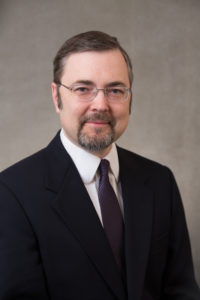 To begin with Dr. Dale Tuggy will give us a lay of the land, going through seven different ways that Christian philosophers have understood divine foreknowledge and human free will. He makes the case that the notion of exhaustive foreknowledge makes libertarian free will impossible. After all, if we are unable to do other than what God knows we are going to do, then we don’t really have the freedom to chose, right? See what you think.
To begin with Dr. Dale Tuggy will give us a lay of the land, going through seven different ways that Christian philosophers have understood divine foreknowledge and human free will. He makes the case that the notion of exhaustive foreknowledge makes libertarian free will impossible. After all, if we are unable to do other than what God knows we are going to do, then we don’t really have the freedom to chose, right? See what you think.
Dr. Dale Tuggy served as Professor of Philosophy at the State University of New York at Fredonia for 18 years. He has taught courses in analytic theology, philosophy of religion, religious studies, and the history of philosophy. Tuggy has a PhD from Brown University. He has authored about two dozen peer-reviewed articles and book chapters relating to the Trinity and other topics in analytic theology and philosophy of religion.
—— Notes ——
Options for Foreknowledge and Freewill
- God’s foreknowledge does not cause you to act, rather he foreknows something because you are going to do it (Origen)
- Divine Timelessness: God is timeless. He timelessly exists. Any kind of change is impossible for God. God is outside of time. His knowledge is timeless as well (Boethius, Thomas Aquinas)
- Middle knowledge. God knows all necessary truths (like 2 + 2 = 4). He also knows all contingent truths b/c he knows what people will freely choose in any circumstances. (Luis de Molina, William Lane Craig)
- Determinism, no libertarian free will (Calvinism)
- Your free will changes past facts and changes God’s knowledge. Causation occurs from the future to the past or from the present to eternity
- It’s a mystery. God knows what I’m going to do and yet in the moment, I could have chosen otherwise and have free will. (Arminianism)
- The future does not yet exist. God knows everything that can happen and everything in the past and present, and everyone’s inclinations, and everything that he has planned to do. (Open Theism)
—— Links ——
- See other episodes in this series on Foreknowledge and Free Will
- Check out the 6 part Calvinism vs. Arminianism debate between Blake Cortright and Jacob Rohrer
- More about Dale Tuggy at Trinties.org
- Also check out these six episodes from the Trinities podcast about God and time:
- podcast 206 – Florian Fischer – A Slightly Opinionated Introduction to Philosophy of Time
- podcast 207 – Ryan Mullins – In Defense of Divine Temporality
- podcast 208 – Natalja Deng – Eternity
- podcast 209 – Ludwig Neidhart – God and Time – A Defense of God’s Timelessness
- podcast 210 – Ludger Jansen – Action and Eternity
- podcast 211 – Johannes Grössl – Embedded Sempiternalism – Theological Models beyond Presentism and Eternalism
- podcast 212 – Dale Tuggy — Some Thoughts about God and Time
- Get his book, What Is the Trinity?, or read his article in the Stanford Encyclopedia of Philosophy about Trinity theories
- Listen to previous Restitutio podcasts with Tuggy here
- Intro music: Good Vibes by MBB Attribution-ShareAlike 3.0 Unported (CC BY-SA 3.0) Free Download / Stream: Music promoted by Audio Library

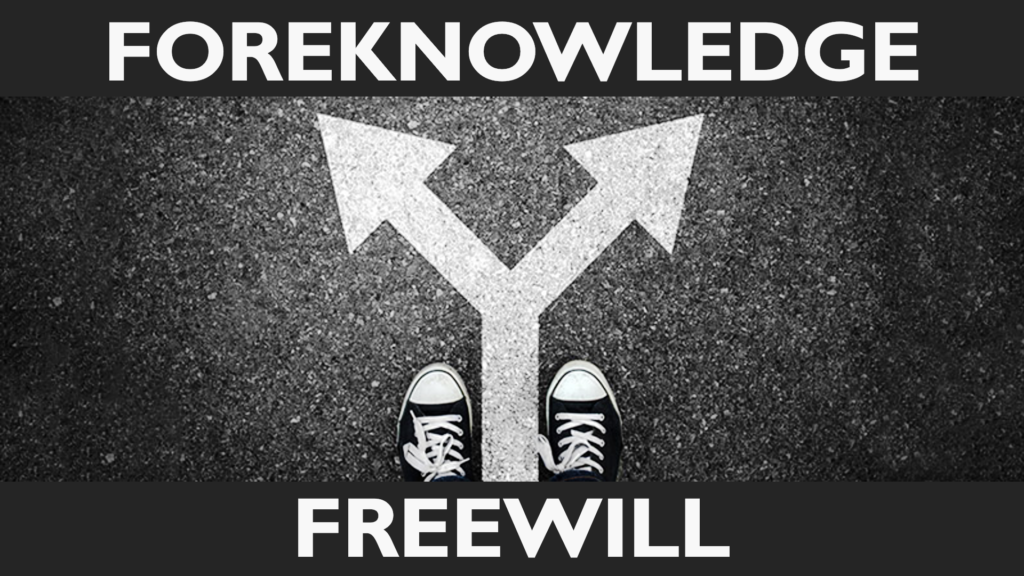

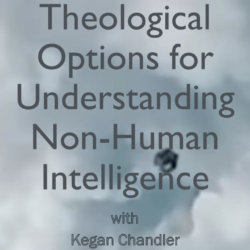
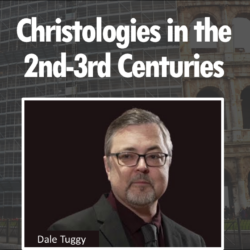

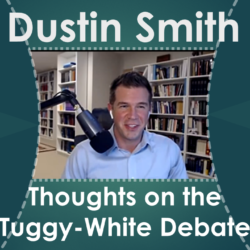

This was a fascinating discussion. I like a more nuanced view that Judaism allows for, but much of this view, in my limited understanding of the topic, work within an open theism concept. I’m curious why whatever Jewish view Dale learned was unsatisfying and led him to the conclusion that open theism was the only option.
With the exception of the “heretical” Rabbi Chasdai Crescas, born in Barcelona around 1340, who seems to have denied free will, most Jewish thinkers throughout history have embraced free will, to the point where Rambam can state the free will is the foundation upon which the entire Torah rests. Doubt in free will is an effect of a belittling of human greatness, as supporters of this thought perceive humans as nothing more than sophisticated animals, enslaved to their instincts and biases, unable to triumph over their innate desires, leaving no room for free will.
In Jewish thought, humans are understood to be more than blood, bones, and sinews that make up physical bodies. Free will is the crown of human grandeur. Free will, however, must be defined. Free will in Jewish thought is not the ability to choose a matza ball soup or a tomato soup for lunch. Free will is defined as the ability to choose between right and wrong, not the ability to choose X or Y. We’re not always able to choose between the inconsequential X or Y, we are guaranteed the choice between good and evil.
As for God knowing the future, God has a plan, but as far as the decisions people make, the right or wrong moral choices, he is unaware.
Consider the Gemara Niddah 16b, “That angel that is appointed over conception is called: Night. And that angel takes the drop of semen from which a person will be formed and presents it before the Holy One, Blessed be He, and says before Him: Master of the Universe, what will be of this drop? Will the person fashioned from it be mighty or weak? Will he be clever or stupid? Will he be wealthy or poor? The Gemara notes: But this angel does not say: Will he be wicked or righteous? This is in accordance with a statement of Rabbi Ḥanina, as Rabbi Ḥanina said: Everything is in the hand of Heaven, except for fear of Heaven. People have free will to serve God or not, as it is stated: “And now, Israel, what does the Lord your God ask of you other than to fear the Lord your God” (Deuteronomy 10:12). The fact that God asks of the Jewish people to fear Him indicates that it is a person’s choice to do so. ”
According to this realm of thought, God does not know whether people will be righteous or wicked and it’s up to us to choose which lifestyle we want to live. Nevertheless, God sets the moral standards which define a righteous or wicked lifestyle.
I’m looking forward to the remainder of the episodes in these series.
A few thoughts in response to some of the early points Dr. Tuggy brings up. If we deny that God does not have foreknowledge regarding the actions individuals will make in the future, then shouldn’t we also deny prophecy? How can God or his prophets accurately predict the future actions of individuals unless they know what those individuals who have not even existed yet will do? A clear illustration of this in action is Jesus’s prediction of Peter’s denial. Jesus tells Peter that he will deny him three times. Peter denies this and yet it happens. Did Peter have free will in this? If so, then Peter has the capability to make Jesus, and by extension God, a liar. If Jesus is able to predict Peter’s future actions, then he must know what Peter’s future action will be. It is also curious that Jesus explains why Peter’s denial even happens. Jesus explains that Satan desires to sift Peter like wheat. So then, it seems that Satan is allowed to tempt Peter into denying Jesus, but Jesus prays that Peter would be strengthened and endure the sorrow of his betrayal unlike Judas who killed himself over his betrayal. If you are going to deny God’s foreknowledge, then you would need to explain how Jesus knew Peter was going to deny him three times.
You also spoke about God’s foreknowledge removing moral responsibility as an objection and touched on the notion of blame. I think that the notion of blame is a very human conception. We have a tendency to blame people for things and believe that it is people “fault” when they act a certain way. Just look to Genesis. After Adam and Eve eat of the tree and God asks them why they did it, they immediately start blaming each other instead of asking forgiveness. Again, our instinctive sinful response is to blame. Look at Romans 9:19. Paul explains that God’s will is absolute, then presents a possible objection asking why God blames us since no one can resist is will. This would have been a perfect opportunity for Paul to say that of course God can blame you since you have free will and chose evil. Yet Paul does not say this. Instead his response is to ask who can accuse God of anything and that God has the right to form people who he wills to form them.
I think instead of looking at judgment as a matter of blame it should instead be viewed as actions and consequences. For instance, I think you gave mechanical bull analogy. If a mechanical bull goes haywire, we don’t blame the bull since it’s just a machine without free will. Well, what if someone comes in and messes with the bulls wiring such that it malfunctions and can not be fixed. We don’t blame the bull, but at the same time, since it can’t be fixed, it needs to be destroyed so it does not cause further harm. I think the analogy can work with humans. We were created without fault, but someone (Satan/sin) came in and messed with our wiring. God has been trying to fix us (humans collectively) since then. Remember, Paul tells us we are slaves to sin. I doesn’t seem like we have much choice in the matter. Most cannot be fixed, but some can. Those that cannot be fixed need to be destroyed, but those that are fixed are restored. There is no blame cast upon supposedly free agents, only actions and consequences. The consequence of the action (sin) is destruction (death).
Also in your objection to God being timeless you mentioned that God changes, yet scripture might disagree with you (Malachi 3:6, Psalm 102:25, Numbers 23:19, James 1:17). Perhaps I have taking these verses out of context, but there does seem to be a theme in scripture that God is unchanging. But this does make sense. God being unchanging is one of the assurances we have that he will keep his promises. I know there are instances where is seems like God changes his mind (sacrifice of Issac and destruction of Israel after the golden calf), but I would argue that God never intended to have Issac die or Israel be destroyed. Instead he makes such statements to test Abraham and Moses respectively.
Anyway, this is an excellent topic and one I find fascinating.
Sean, I’m looking forward to hearing more on why this topic matters to my life.
At this point, I’m seeing a related topic and a question:
Firstly, I am already seeing this as related to Once Saved Always Saved theology, because as two people who recently parted ways with that doctrine, my husband and I are in the midst of discussing that issue with our friends.
Spoiler alert: our friends and fellow ministers are primarily troubled on this issue by some sort of tension they see between Romans/Ephesians and other books of the New Testament. (I think this is the brunt of it: if God foreknew my salvation before the foundation of the world, then how could I undo God’s foreknowledge?)
I uh, I think I see the tension that my friends are discussing, but I’m pretty strongly of the opinion that if two sections of the Bible seem to contradict each other, I don’t get to pick a winner. They have to fit or I have to understand them better.
My logic may be like bringing a mallet to a heart surgery, but so far it’s helping me force myself to confront and meditate on verses that are outside my theology, so I like it.
My question is this: are there things that it behooves us not to know? I’m thinking specifically of Deuteronomy 29:29 “The secret things belong to the Lord our God, but the things that are revealed belong to us and to our children forever, that we may do all the words of this law.”
Perhaps the rest of this series will offer me another way to resolve the Ephesians 1 tension I mentioned above. Further, I’m hopeful that I’ll get a real feel for any implications of this topic beyond, “it sure is interesting.”
It seems to me that this endless debate about free will and determinism in a theological context is really about what is meant by free. God, by a definition that most of us could agree upon, has free will in a sense that humans could never have. Knowledge of the precise quantity of will allocated to humans is known only to God but does exist for us as an approachable limit towards which we are commanded to aspire.
The Calvinist points of theological understanding present the Christian message from God’s point of view and are intended to emphasize the ultimate sovereignty of God. The fact that humans do not have the same scope of sovereignty does not excuse them from making choices. Science tells us that we live, from our point of view, in a probabilistic world where some events cannot be known, from our point of view, until after it has occurred. We also live in a physical universe that is so huge that we have no possibility of observing, much less reaching, its outer limits. No sooner did we notice this Tower of Babel than we realized it was an onion growing faster than we could peel the layers.
I would conclude that yes, there are things that are known to God that we cannot know by virtue of being created as humans. I accept the bible as true but the meanings of some passages are more nuanced than others. The truth of historical material has been proven true by archeological findings. Much prophetic material has been fulfilled but the specifics of some prophesies are known only to the sovereign God. The value of believing biblical teachings is revealed by positive changes in the lives of believers. The value of misinterpretations expressed as church doctrines when cruelly applied to sincere dissenters has directly contradicted the personally uttered teachings of Jesus.